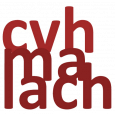


Malach Centre for Visual History
Frequently Asked Questions
I am not a researcher, educator, or student - can I visit CVH Malach and work here with archival interviews?
Yes, CVH Malach is also open to interested members of the general public.
Is there a registration fee?
No, registration for access to archives at CVH Malach is completely free.
Is it necessary to make an appointment in advance?
It is not necessary. In view of the limited capacity of CVH Malach, you will be happy to let us know in advance about the planned visit by e-mail address malach(at)ufal.mff.cuni.cz or by phone.
Why is the Visual History Center on "matfyz"?
CVH Malach was established here following a research project that dealt with the possibilities of speech recognition and multilingual extraction of information (Multilingual Access to Large Spoken ArCHives). This project took place in 2002-2007 in cooperation between the USC Shoah Foundation and a number of academic institutions around the world, including the University of West Bohemia in Pilsen and the Faculty of Mathematics and Physics at Charles University in Prague. The creation of CVH Malach is an effort to continue and develop the successful cooperation between Charles University in Prague and the USC Shoah Foundation.
Why are the interviews not publicly accessible directly on the Internet?
Full publication of the archives is prevented – for effective work, a high-speed connection is required, which is not part of the usual public connection (with the Archivisual connection of the history of the USC Shoah Foundation, CVH Malach has a high-speed internet connection. More fundamental, however, are security reasons and legal regulations: most of the testimonies concern not only subjects from the private persons of the testifying persons themselves but also relatives, descendants, etc.
Can I get copies of complete interviews or parts?
Yes, only in certain cases: The USC Shoah Foundation provides substitute copies of testimonies to the testifying persons and the family testimonies themselves, then grants an interview to all assisting educational organizations for education for a license. For more detailed information, visit the USC SF website. Details of copies of testimonies from the Refugee Voices Archive and from the Museum of Romani Culture in Brno can be communicated to CVH Malach staff at malach(at)ufal.mff.cuni.cz
Can one quote from the interview? In what way?
Sure, the citation format is similar to a source when quoting from other archival sources. The citation must always include the full or archive name - "USC Shoah Foundation" / "Refugee Voices" and the narrator's name. Details to quote specific sources:
USC Shoah Foundation Visual History Archive:
Name or initials of the narrator, interview ID number, and also interview segment or optional time stamp. or citation: "Interview with (narrator), ID (identification interview in the database), segment (interview segment), USC Shoah Foundation Visual History Archive in the Malach Visual Numbers Center Charles University History in raw LINDAT/CLARIAH-CZ (LM2018101)."
Archive in Voices Praha / Refugee Voices:
Name of the narrator, interview. or quote: "Interview with (access to the narrator history), archive (interview in Full Memory), Refugee Voices Archive in Data Center Visual Number Write Number Write Number LINDAT/CLARIAH-CZ (LM2018101)."|
To obtain a citation from the Fortunoff Archive, it is necessary to apply directly to the archive administration using the identification data of a particular interview at the email address fortunoff.archive@yale.edu
When quoting, every user of CVH Malach material is of course obliged to follow local laws and rules, including those for the protection of personality, applicable in the Czech Republic.